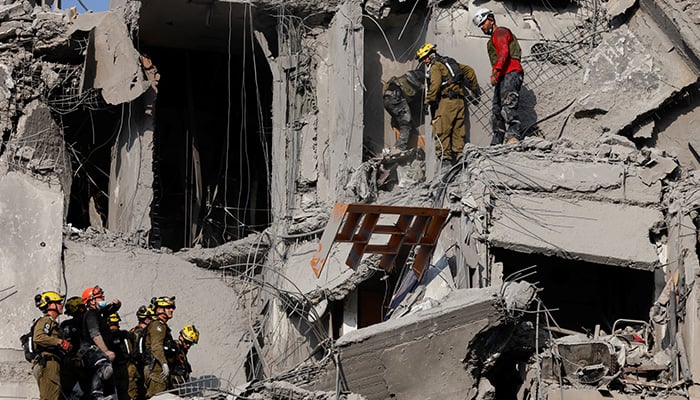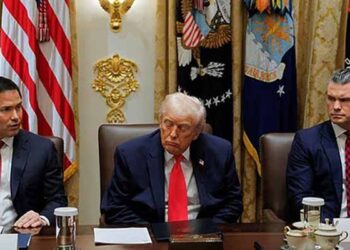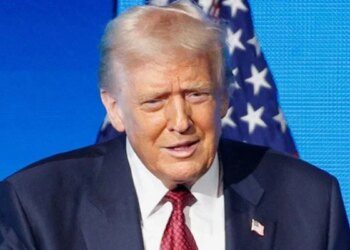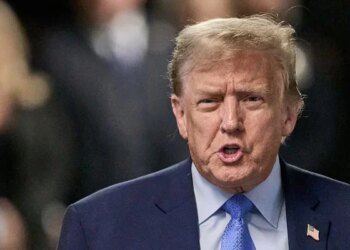Select Language:
- Vance, Rubio, and Special Envoy Witkoff are in talks with Iran.
- Trump declares a “complete and total” ceasefire between Israel and Iran to take effect soon.
- A source indicates Trump called for discussions with Israel and Iran shortly after U.S. airstrikes.
On Monday, President Donald Trump facilitated a ceasefire between Israel and Iran following discussions with Israeli Prime Minister Benjamin Netanyahu, according to a senior White House official.
This official mentioned, under anonymity, that Israel consented to the ceasefire on the condition that Iran refrains from launching additional attacks, and Iran has indicated that it will not initiate further hostilities.
Vice President JD Vance, Secretary of State Marco Rubio, and U.S. Special Envoy Steve Witkoff took part in both direct and indirect communications with Iranian representatives, the official revealed.
Earlier on Monday, Trump announced that a “complete and total” ceasefire between Israel and Iran would be implemented in the upcoming hours, shortly after both sides had issued threats of renewed aggression.
This follows a missile strike by Iran targeting a U.S. military base, which fortunately resulted in no casualties, after U.S. bombers attacked Iranian underground nuclear sites with 30,000-pound bunker-buster bombs over the previous weekend.
Immediately following these U.S. strikes, Trump urged for negotiations with both Israel and Iran.
“He told his team Saturday night, ‘Let’s reach out to the Iranians,’” the official recounted. “‘Get me Bibi. We are going to make peace,’” quoting Trump.
Trump’s administration had previously engaged in negotiations with Iran five times in the weeks leading up to this conflict, but discussions broke down after Iran insisted on its right to continue uranium enrichment.
Last Thursday, Trump stated that he would decide on the use of American military force “within two weeks,” yet by Saturday evening, he authorized airstrikes against Iranian facilities.
Trump’s unprecedented choice to bomb Iran’s nuclear sites early on Sunday marked a significant move, counter to his prior commitments to avoid foreign military interventions.
Aligning military action with U.S. ally Israel raised apprehensions within his right-leaning “Make America Great Again” base, which has rallied around his earlier promises to sidestep foreign conflicts.
If the ceasefire holds, it could quiet criticism and bolster Trump’s self-image as a peacemaker.
This ceasefire culminated from a series of conversations Trump held in the Oval Office, during which he directly communicated with Netanyahu, who has historically advocated for increased U.S. military involvement in the conflict.
The official emphasized that Trump has “demonstrated restraint” and reiterated that U.S. interests remain his primary focus.







